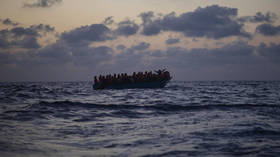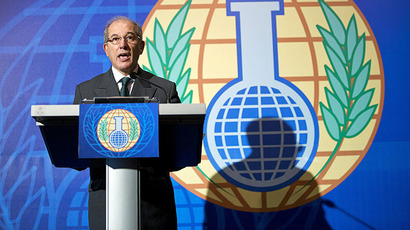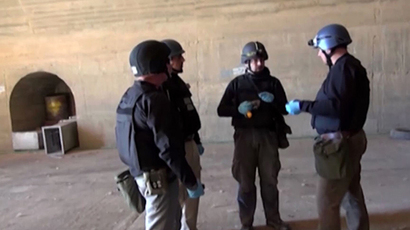Syria chemical destruction plan to go ahead despite Italian port city protest
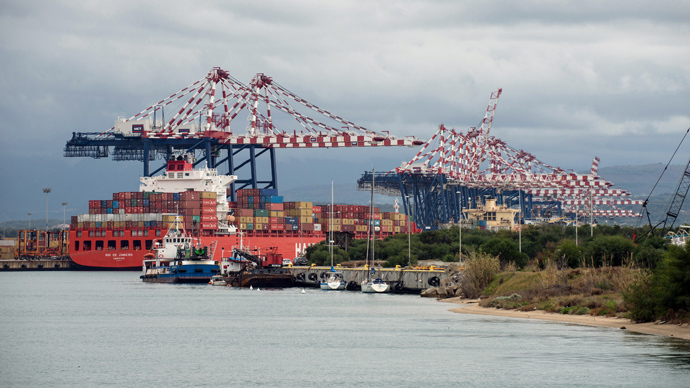
Italy has approved its southern port of Gioia Tauro as the transfer site for 560 tons of Syrian chemical weapons material to a US ship. The decision has been met with a protest from the port’s mayor, who fears the weapons are too dangerous for the city.
"This is very serious. They are putting my life at risk. If anything happens, people will come and get me with pitchforks,” Gioia Tauro mayor Renato Bellofiore said in response to the news.
Bellofiore stressed that the city has no suitable hospitals “in case of any accident or damage.” He pledged to take actions to prevent the transfer, even if it means blocking the port, even though this is not in the mayor’s jurisdiction.
“[Italian Foreign Minister Emma] Bonino does not know what democracy is,” as the decision was made from above and imposed onto the local population, Bellofiore was quoted as saying by the Italian news agency ANSA.
The mayor’s statement came shortly after Italian Transport Minister Maurizio Lupi announced that Gioia Tauro would be the site for the transfer of a shipment of Syrian chemical weapons materials from Danish vessel to a US ship.
“The government has chosen the port of Gioia Tauro as particularly appropriate,” Lupi told lawmakers at a parliamentary hearing on the operation. He pointed out that “the port specializes in this type of activity.”
The transfer of the chemicals is part of the UN-backed plan to destroy Syria’s chemical weapons arsenal by June 30, 2014.
Lupi said that an estimated 60 containers with the chemicals, including mustard gas and the components for making Sarin and VX, would be transferred from one ship to the other using cranes.
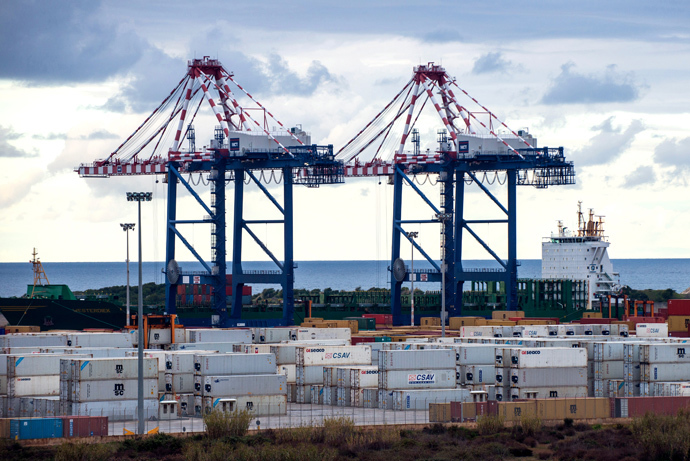
“Containers will be placed on mobile platforms which will make ship-to-ship possible,” Lupi said.
The ship-to-ship transfer will take place at the port in Calabria, "following international standards and in absolute secure conditions."
“There will be no stocking on land,” he said.
A significant portion of “priority chemical materials” will be destroyed on board a US vessel, MV Cape Ray. It is expected to reach the coast of Italy within the next couple of weeks, where it will receive the load to destroy in international waters. No particular date has been set, but it is expected that the transfer will be completed before mid-February.
"I am still confident that we can meet this deadline of the end of June ... We will do our best to meet this deadline," Ahmet Uzumcu, head of the Organization for the Prohibition of Chemical Weapons, told reporters in Rome.
He has also said that more than 16 tons of the "primary" chemicals had so far been shifted to a Danish vessel in the Syrian port Latakia.
"The quantity of the first movement is not that high," he said.
The ship is now back in international waters offshore and awaiting for more deliveries.
However, the head of the UN chemicals watchdog suggested that the removal and destruction of Syria's chemical arsenal may not be completed until the end of June due to logistical and security problems.
The actual work on the destruction of the first load is expected to take 45 days under ideal conditions. But the mission may last about 90 days because of bad weather.
Syria agreed to the destruction of its chemical weapons arsenal through a deal brokered by Russia after Washington threatened to use military force the war-torn state.
The deal followed a sarin gas attack on August 21 that western nations accused President Bashar Assad of orchestrating. Syria says that rebels were responsible for the use of chemical agents.







